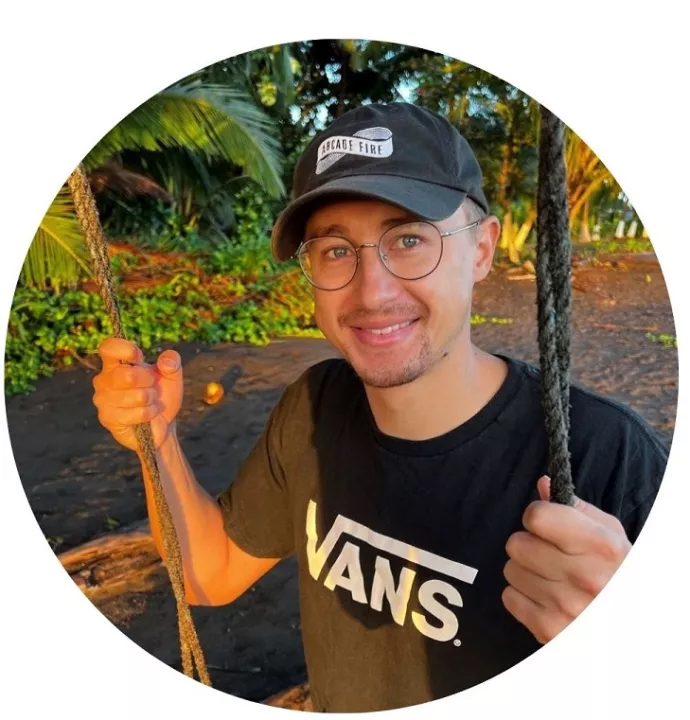
CPS Grad Spotlight - Eugene Klyshko
Name: Eugene Klyshko
MSc or PhD Candidate: PhD Candidate
Location of Undergraduate Education:
BSc in Applied Mathematics and Physics at Moscow Institute of Physics and Technology
Name of the Lab at CPS: Rauscher Lab
Selected Awards:
CPS Teaching Fellowship
Mary Louise & Ronald Laidlaw Martin Graduate Scholarship
Cray Inc. Fellowships in Physics
Selected Research Contributions (if any):
https://scholar.google.ca/citations?user=TyK96I4AAAAJ&hl=en
Eugene, please tell us about yourself and your journey as a PhD Candidate!
How did you come to UTM? What interested you to join a lab here?
When I came to the graduate recruitment event at the Department of Physics, organizers mentioned that many biophysics faculty members were cross-affiliated with UTM and had high-end experimental labs there. UTM looked like a great environment for collaboration between computational and experimental groups. Later in September I met Dr. Sarah Rauscher, a new UTM professor back then, and her project proposals aligned closely with my research interests. I decided to join Sarah’s brand new computational lab and was lucky to become one of the first graduate students there.
When did you realize that you wanted to pursue a graduate study?
In my later undergrad years, I studied many advanced computational tools for physical simulations, such as numerical methods and parallel computing. I started developing a great passion for biophysical research; modelling living systems at multiple scales from the very first principles, simulating complex physics inaccessible to microscopes. I envisioned that in the near future we would be able to simulate the entire cell, including all physical and chemical processes, on a computer. I wanted to become one of the researchers who contribute to this milestone and thought that graduate school will bring me closer to this goal.
What are your research interests? Tell us few exciting things about your research.
Proteins are these nicely evolved (or designed, depending on your views) molecular machines that carry out all the essential functions in living organisms. Interestingly, proteins are highly dynamic in physiological conditions, i.e. they change their 3D conformation to perform their function. This amazing mobility arises simply from the random physical interactions between atoms. My primary research interests include simulating these atomic motions to elucidate protein function. In combination with other biophysical methods, molecular simulations provide finer details and extract meaning of the experimental results. Furthermore, I am interested in developing better methods for analysis of protein conformational states. Since we work with large multidimensional datasets (hundreds of GBs) which need to be made human-interpretable, machine learning and other statistical tools have a great application in these problems.
What is your goal when you finish your degree?
Work in the research outside of academia, possibly, in a fast-paced biotech company.
What are some of your achievements you'd like to share?
I have noticed grad students could get isolated from each other when they get busy with their own research in the later years of the program, compared to the first years when they take classes and interact a lot. To re-connect the students, share up-to-date knowledge, inspire each other's works, my fellow grads and I created a student-run group called Humans Learning Machine Learning (HLML). Its goal is to facilitate hands-on sessions to study various machine learning algorithms, participate in hackathons, and invite experts to share insights in the weekly meetings. In addition, this group also became a community besides the educational benefits that it provides.
Do you have any advice for students considering to pursue graduate studies in research?
I have a few suggestions for prospective graduate students. Firstly, fully explore your interests in your undergrad years. Talk to lecturers, professors, teaching assistants, apply for research positions in various academic labs and groups (even in other universities and countries). To go above and beyond, explore what types of research people do differently outside academia. Apply for internships in the industry and understand the working styles, ways of communication and required skills. Broadening your horizons will help you to find where you are and make a weighted decision. Secondly, remember to always seek for truth. Sometimes, being passionate about your research may make you "love" the results too much. However, it is crucial to be objective and 'cold-headed' with your subject. Lastly, graduate school can be a challenging experience. Let’s stay positive, find joy in hobbies and other aspects of life to reward ourselves for the hard and persistent work.
